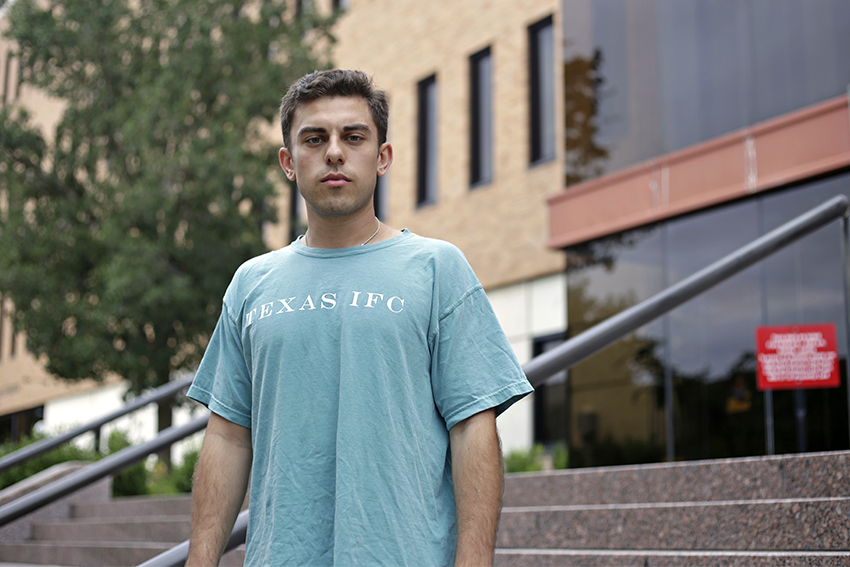Hard liquor might soon be banned from all fraternity events because of a new policy from the Texas Interfraternity Council.
“This is going to be a seismic shift in a lot of chapters because hard liquor can be one of the signature events at some of these bigger parties,” IFC president Peter Driscoll said. “Hopefully it will be absorbed, and it won’t be a big deal next semester.”
The IFC executive board began discussing a change in policy in the spring. In addition, the North-American Interfraternity Conference, which oversees 6,100 chapters across the country, voted last week to ban hard alcohol at fraternity events, unless it is provided by a third-party vendor.
“As a whole, the Greek community around the country has been evolving in response to cultural changes,” Driscoll said. “I think our organizations are becoming more accountable and promoting better standards as all organizations do, which is good.”
The IFC executive board will vote on the policy at its general assembly meeting Wednesday. Once enacted, hard alcohol will be banned from all parties, mixers or other social events, and those found violating the policy will be sanctioned by the IFC judicial board. Those who live in the houses who are twenty-one years old can have hard liquor outside of events.
According to the Office of the Dean of Students, 14 out of 26 UT fraternities have been sanctioned for hazing in the past three years. Of the seven currently on probation, three were held responsible for alcohol consumption.
Driscoll said NIC has been trying to prevent hazing since the early 1900s, but despite its long history, he believes banning hard liquor is a step toward finally eradicating it.
“You have to have moral standards that are guiding the ship,” Driscoll said. “We do not treat new members in any kind of degrading way. That is a pillar of this organization, and that’s missing right now nationwide.”
Grey Monas, who is a member of fraternity, said hazing occurs despite being banned, so organizations will not be deterred by a ban on liquor. He said individuals should learn what their limits are for themselves.
“I think it’s a mistake,” government junior Monas said. “You’re able to drink in bars and other areas where hard alcohol will be present. Once you’ve become that age where you’re legally allowed to drink, I think that it becomes a personal responsibility thing about whether you want to drink hard liquor and whether you can handle doing so.”
William Ntsoane, who is also a member of a fraternity, said he agrees there is a problem with unsafe alcohol consumption, but he thinks alcohol safety training and alcohol amnesty policies — college policies that prioritize a student’s safety in alcohol-related medical emergencies over disciplinary action — are more effective than a blanket ban.
“There are people who can drink liquor responsibly, and there are people who misuse beer and wine,” mechanical engineering sophomore Ntsoane said. “If you are trying to get blackout drunk, you can do it with whatever.”
Driscoll said he believes there is no healthy way to consume hard alcohol, and he hopes this will start a larger conversation about binge drinking across campus.
“There is a greater college culture that we’re starting to get at that’s not solely associated with fraternities or spirit groups,” Driscoll said. “It’s something with adolescents.”





















